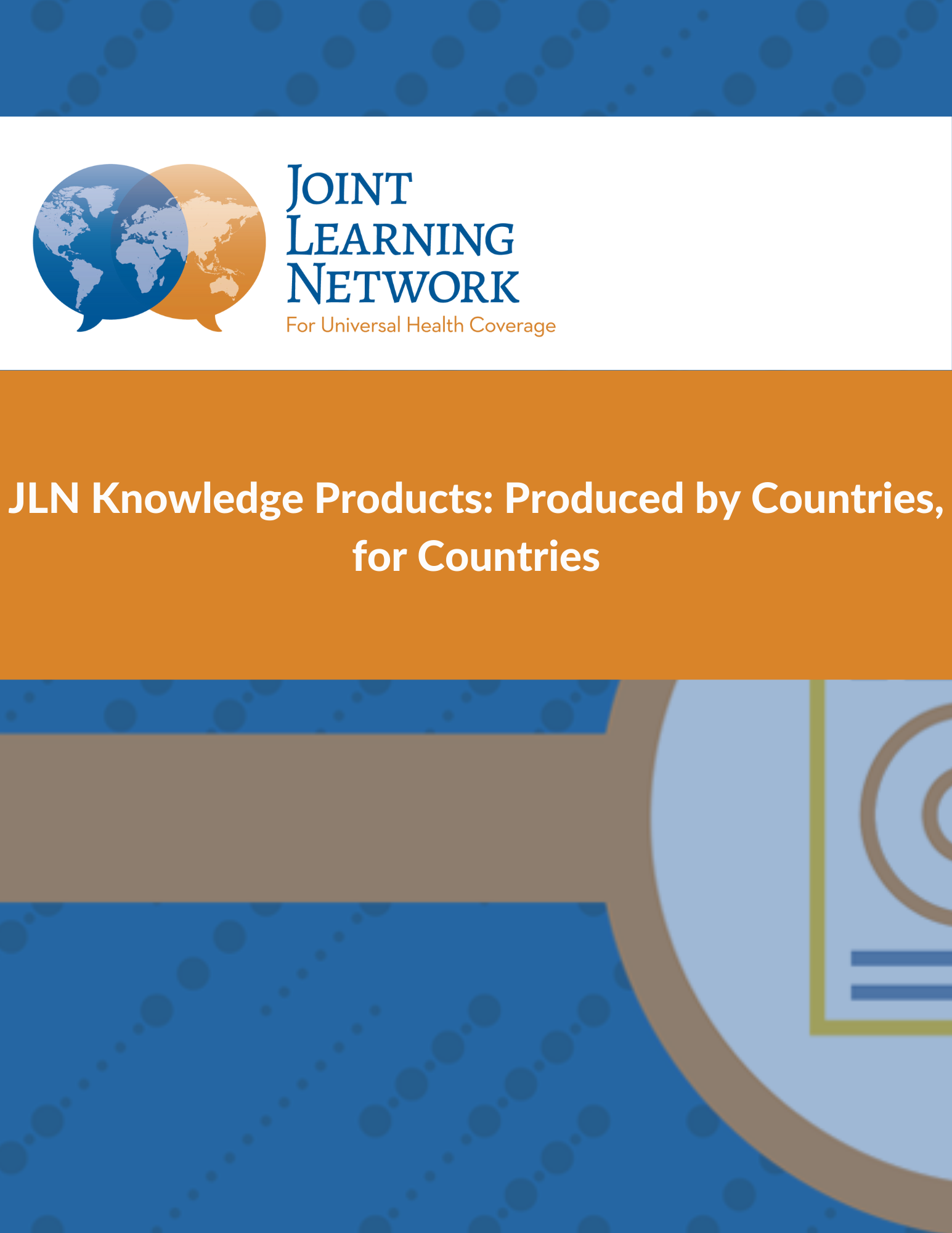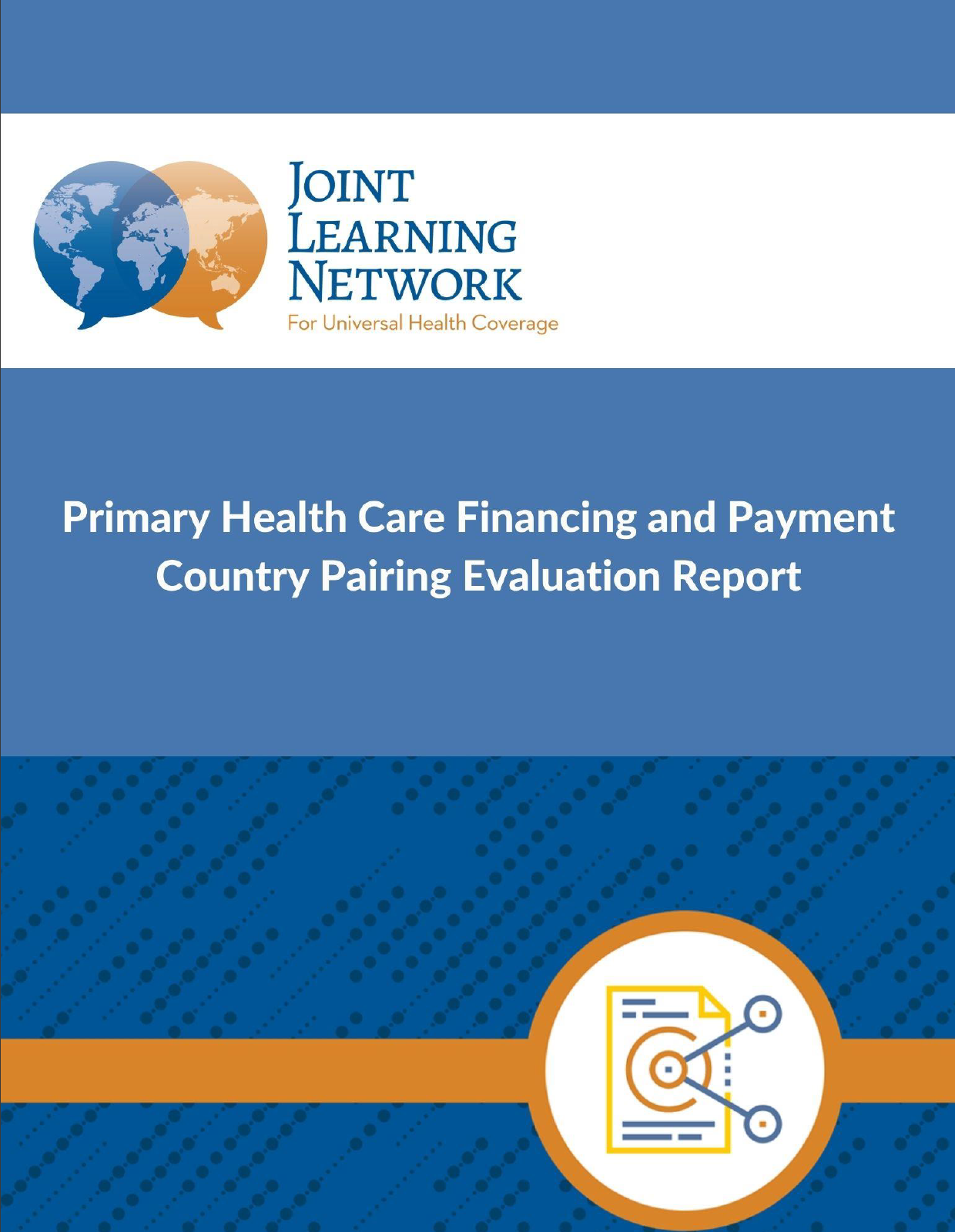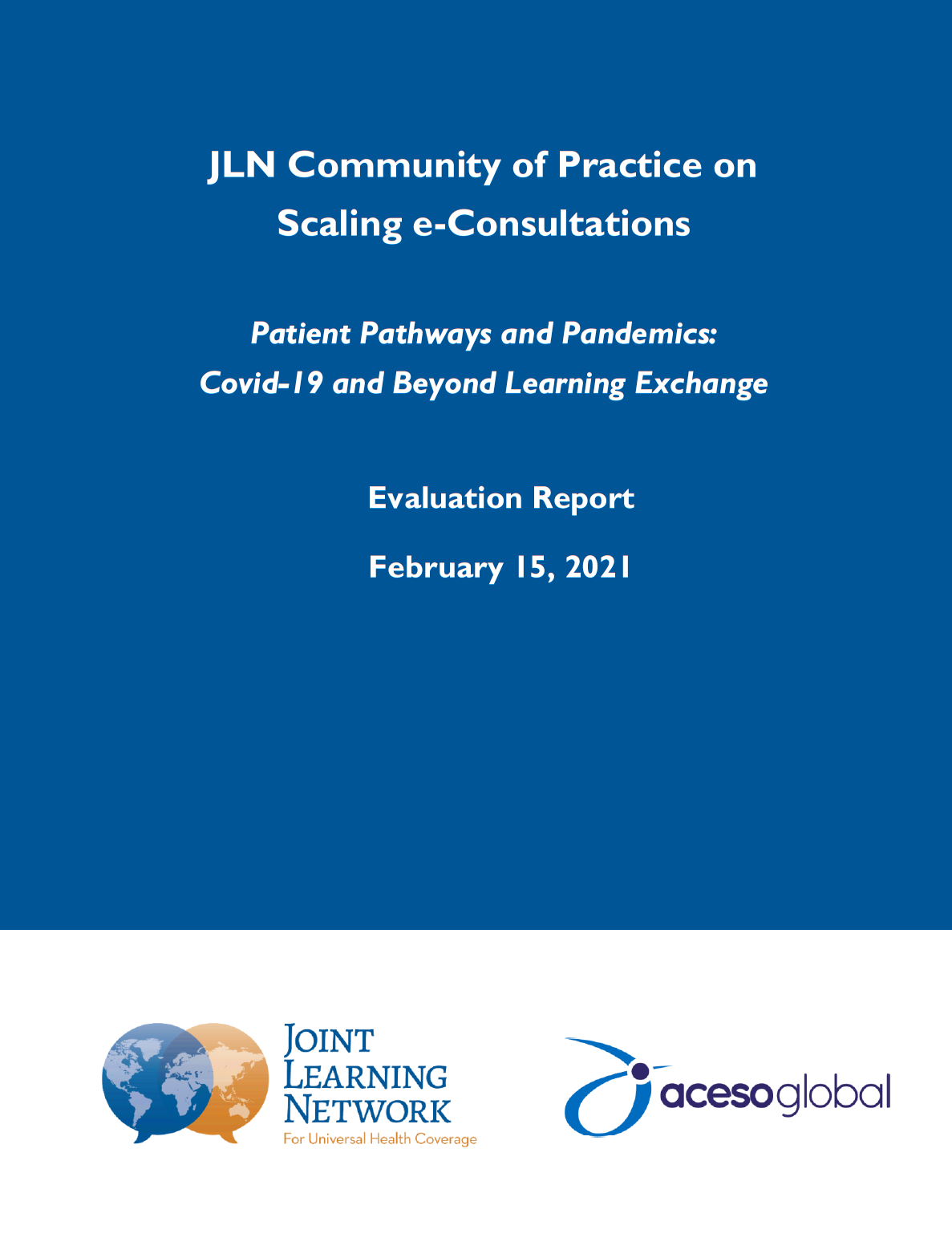
JLN Knowledge Products: Produced by Countries, for Countries
This KP brochure presents a list and brief of the JLN Knowledge products produced by countries for countries.

This KP brochure presents a list and brief of the JLN Knowledge products produced by countries for countries.
This report provides a synthesis of the learning from a Virtual Roundtable Series on Integrating Rehabilitation into Primary Health Care.

In 2020, the PHC Financing and Payment collaborative pushed the boundaries of traditional webinar group-based learning and tested a more intimate and in-depth collaborative learning modality: country pairings. This modality pairs two or three countries with a specific interest in a topic – one that may not be a widely shared interest across the collaborative – to probe deeper into the implementation experience of a resource country and discuss details that are relevant to their countries. The JLN conducted a small developmental evaluation and the purpose was to capture and learn from how these pairings worked and to capture lessons learned from the country pairing approach. By documenting this new method, the JLN will be equipped with data-driven findings on this innovative approach to joint learning for modification, replication, or scale up in the future.

Following the 2020 Joint Learning Network’s Learning Exchange on Patient Pathways and Pandemics: COVID-19 and Beyond, led by Aceso Global, a technical team was launched to focus on implementing and scaling up E-consultations at the primary health care (PHC) level. The CoP was designed to foster practical learning by accompanying implementation in an “implementer” country, Malaysia, which had previously launched an E-consultation initiative during the pandemic and wanted to improve and expand it further. Technical facilitators and country participants provided support and learnings. This mixed methods evaluation aimed to understand how real-time implementation within a technical team supported Malaysia’s preparation for and implementation of the E-consultation extension initiatives.
The Community of Practice (COP) supporting Malaysia’s improvement and expansion of telemedicine for primary health care (PHC), referred to as e–Consultations, represents a potential model for future implementation–oriented JLN engagements. The Malaysia team, with the support and accompaniment of country participants (CPs) and technical facilitation teams (TFTs), successfully implemented key activities along three technical thematic areas despite of the limitations they faced in the midst of an ongoing globalpandemic with unpredictable surges. The duration of the COP was 11 months, from February 2021 to January 2022. The main features of the joint–learning model consisted of: the selection of an implementer country (Malaysia); adoption of an advisory and coaching–based learning approach in which TFTs and CPs assisted the Malaysian teams understand and solve practical issues related to implementation; use of regular but short virtual COP meetings; division of activities and outputs into “implementation planning” and “implementation accompaniment” phases; quantitative measurement of results, and development of a user–friendly e–library of relevant knowledge resources. Based on the technical results, several insightful policy implications came to the fore that can inform future e–Consultation scale–up and improvement efforts in Malaysia and globally. A number of lessons emerged from COP experience than can guide the design of future JLN implementation–oriented engagements.